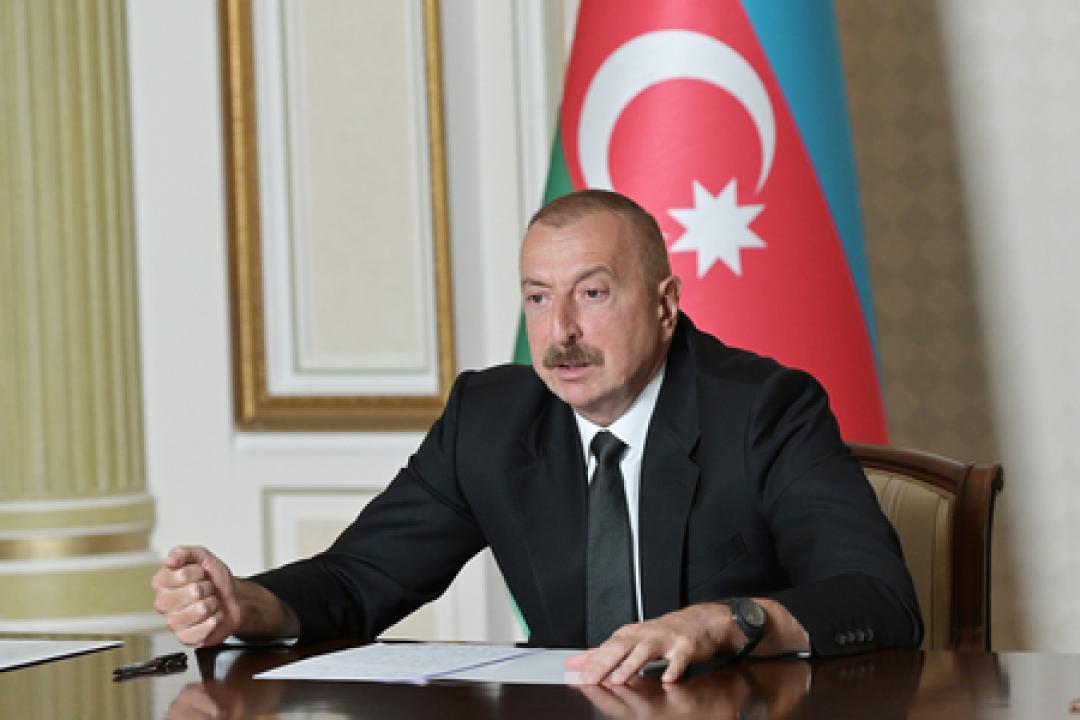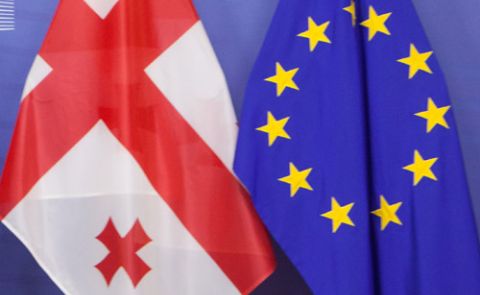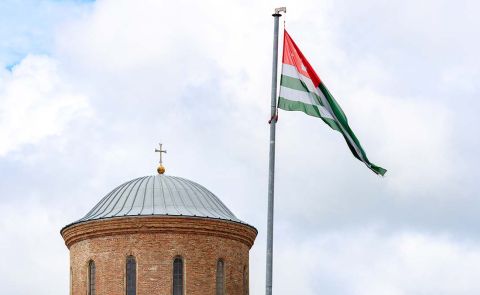
Nagorno-Karabakh: diplomatic hostilities between Armenia and Azerbaijan continue following Ayvazyan’s visit

On 7 January, Azerbaijan’s President Ilham Aliyev spoke on the current tensions in Nagorno-Karabakh while summarizing the year 2020.
He criticised the activities of the Russian peacekeepers who allowed foreigners to enter Karabakh. “We set before the peacekeepers the task of not allowing foreigners into the region without our permission, but a delegation from the French parliament went there. After that, the French ambassador was summoned to the Foreign Ministry and he was handed a note,” Aliyev stated. The Azerbaijani President also mentioned foreign companies that were carrying out illegal development in the territories of Nagorno-Karabakh, saying that they would be held accountable.
Aliyev was especially furious with the visit of Armenia’s Foreign Minister Ara Ayvazyan to Nagorno-Karabakh (Caucasus Watch reported). He condemned the actions of official Yerevan and in particular the visit of the Armenian Foreign Minister to Karabakh. “What have you lost there? Let the lessons of the war not be forgotten. These visits must end. We warn you that an end must be put to these provocations, otherwise Armenia will regret it. The last visit of the Russian government delegation to Armenia and Azerbaijan was devoted to the issue of normalising relations. If we are talking about normalisation, then why are such provocative visits needed? What do they want to show? Let them not forget that such steps annoying us have cost them dearly,” Aliyev threatened. “All this must be put to an end, and no foreigner can enter there without our permission - no organisation except the Red Cross. This is our internationally recognised territory,“ he added.
Further, he touched directly on the Russian peacekeepers who exceeded their powers. “In the statement of 10 November, the functions of the peacekeepers are indicated, and there is no mention of humanitarian activities. But we turned a blind eye to this. We understood that it is winter now, and steps and measures are needed to recover. We agreed to this out of humane considerations, and the Armenians should appreciate this. We also allowed the goods to be delivered to Karabakh by rail, via Barda, and not by air via Lachin,“ he said.
In conclusion, Aliyev touched upon the issue of restoring the border in the Gubadli region, where the houses and roads of Armenians came under the control of Azerbaijan. “We could get them out of there in one day, but we didn't, we gave them time. But when they captured Kelbajar, our people left there immediately, barefoot and without property. No one then gave them time. Let them remember this and appreciate our attitude,” he said.
On the other side, the spokesperson of Armenia’s Ministry of Foreign Affairs Anna Naghdalyan responded to the accusation from the Azerbaijani MFA on Ayvazyan’s visit. “These statements of Azerbaijan are completely empty and unfounded. The 10 November statement does not impose any restrictions on contacts between Armenia and (the de facto authorities of Karabakh) at different levels,” she stressed.
Naghdalyan added that the 10 November trilateral statement aimed at establishing a ceasefire and deploying Russian peacekeepers in Karabakh does not fix any agreement on the status of the region. She pointed out that the status of Karabakh should be determined as a result of the peace process based on the principles proposed by the OSCE Minsk Group co-chairs and on the principle of the right of peoples to self-determination.
She also touched upon the assessment by the Armenian side of Azerbaijan's implementation of the trilateral statement, saying that Azerbaijan violated a number of the key provisions of the document. “According to the first point of the trilateral statement, the parties should stop at their positions as of 10 November and end hostilities. Meanwhile, the Azerbaijani side, more than a month after the establishment of the ceasefire regime, resorted to military actions in the direction of the settlements of Stary Takher and Khtsaberd in the Hadrut region of Karabakh, admitted human losses and captured the Armenian servicemen who were on the spot,” she said.
Naghdalyan added that the Azerbaijani side is still not fully complying with the 8th point of the trilateral statement, according to which the exchange of prisoners of war, hostages and other detainees should take place. She said that Armenian POW’s continue to be held in Azerbaijan and that criminal cases are initiated against them and that they are depicted as terrorists.
The spokesperson of Azerbaijan’s MFA Leyla Abdullayeva responded to Naghdalyan’s statements. “An attempt by a representative of the Armenian foreign ministry to justify the illegal visits of Armenian officials to the Karabakh region of Azerbaijan and the assertion that this does not contradict the obligations of the trilateral statement, suggests that Armenian officials, unfortunately, like 30 years ago, live in illusions and do not draw conclusions from the new reality in the region. It means that Armenian leadership does not think of the people living in Karabakh, peace, and security, future coexistence in a prosperous environment but of narrow political interests directed to the past. The consequences of this policy for Armenia are obvious,” she said.
Meanwhile, it was reported that the French President Emmanuel Macron phoned Armenia’s Prime Minister Nikol Pashinyan to discuss the situation in Nagorno-Karabakh. Macron expressed his determination to strive for a balanced political process in order to find a lasting political solution after the ceasefire agreement of 10 November. “In this context, the President of the Republic pledged to support the ongoing efforts to allow the release of all prisoners and to support the economic development of Armenia,” the statement of Macron’s administration added. Economic ties were also a topic of discussion between the two parties. The phone call came one day after a transport plane chartered by the French government delivered more humanitarian aid to Armenian victims of the conflict. The aid included medical supplies and clothing collected by the French-Armenian Aznavour Foundation.
See Also


BP Strengthens Presence in Azerbaijan’s Offshore Energy Sector

Netanyahu’s Letter to Aliyev: Mutual Trust, Solidarity Following Hamas Attacks, Facilitating Dialogue Between Israel and Türkiye

Azerbaijan Expands JF-17 Thunder Fighter Jet Order from 16 to 40 Units

EU Commissioner and NATO PA Warn Georgia Over Democratic Decline Amid Accession Challenges

